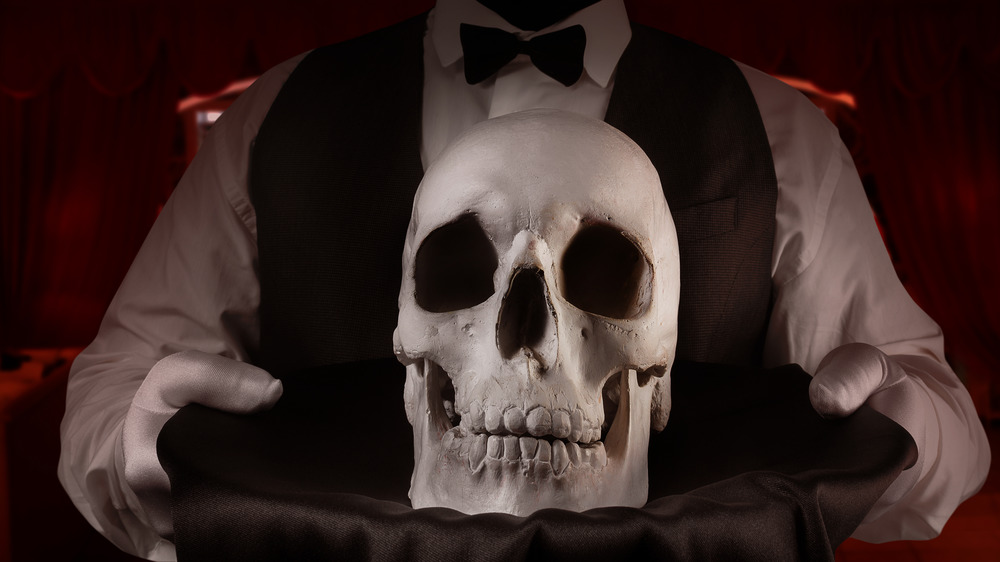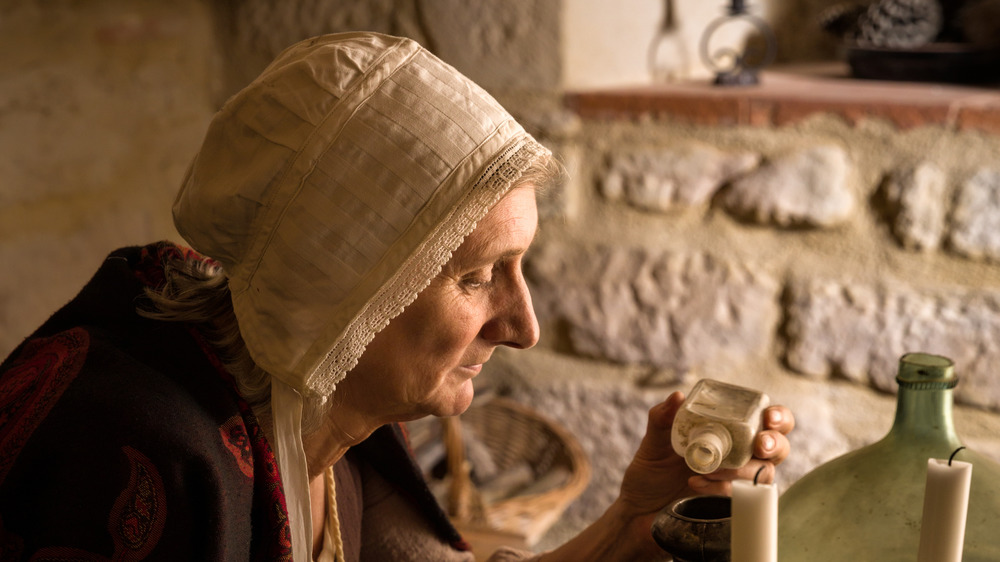The Messed Up History Of Cannibalism In The Middle Ages
Life in the Middle Ages, or Medieval period, was no picnic for most people, what with all the poverty, disease, backbreaking manual labor, and Crusades. And on top of it all, famine sometimes led to some pretty horrifying food options. Per Smithsonian magazine, Jay Rubenstein of the University of Tennessee, Knoxville reported many references to cooked human flesh being sold for consumption in 11th-century English markets. Furthermore, several first-hand accounts of an incident during the Crusades in 1098 when, after laying siege and capturing the Syrian city of Ma'arra, Christian soldiers proceeded to eat several of the local Muslim residents.
Reports vary in terms of whether the cannibalism was done in secret behind the backs of commanding officers or if military leaders approved of it because they "wished to use stories of the barbaric act as a psychological fear tactic in future Crusade battles." Regardless, it's a pretty horrifying bit of history, and as Smithsonian points out, it was an "embarrassing stain" on European culture almost immediately, as Europeans didn't want to think of themselves as cannibals and often depicted their cultural enemies, including witches, Jewish people, Asian people, and pagans, as cannibals. It was not only disturbing but hypocritical for Christian soldiers to eat those they had conquered in battle.
In 2013, The Guardian discussed the history of "famine cannibalism," citing evidence of the practice at the Jamestown colony in North America during the winter of 1609-10.
A skull a day keeps the doctor away?
That was one example of a long tradition of people eating other people out of desperation during periods of extreme food shortages. Earlier, in 1594, less than 100 years after the end of the Middle Ages, Paris, France declared an emergency during the siege of the city by Henri IV and declared that bread "should be made from bones from the charnel house of the Holy Innocents." Unfortunately, people who ate the bread died anyway, so the cannibalism didn't save any lives.
Aside from desperate acts resulting from starvation, people practiced cannibalism in Europe after the Middle Ages, though the purpose was medicinal rather than nutritional. A different Smithsonian magazine article examined the 2012 book Medicinal Cannibalism in Early Modern English Literature and Culture, in which author Louise Noble of Australia's University of New England discussed how the act of consuming human flesh fit in well with the medical theories and practices of the day, which was homeopathic in nature. Noble noted that it was "'like cures like.' So you eat ground-up skull for pains in the head. Or drink blood for diseases of the blood." Human remains were also considered medicinally powerful because they supposedly contained the spirit of the person who was being consumed. Noble even found several mentions of cannibalism in early modern European literature, including references in the work of John Donne, William Shakespeare, and Edmund Spenser.

